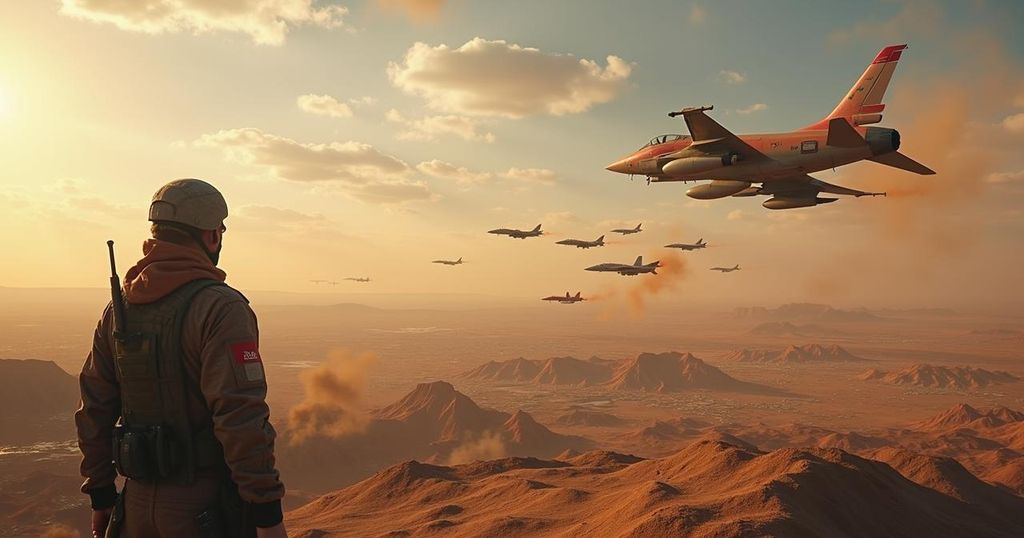The Iraqi Foreign Minister Fuad Hussein expressed Iraq’s opposition to the escalation of war extending towards Iran and the use of its airspace by Israel. Iranian Foreign Minister Abbas Araghchi indicated Iran’s preparedness for war yet emphasized the desire for peace. This discourse reflects the precarious balance of regional relations amidst rising military tensions.
Iraqi Foreign Minister Fuad Hussein expressed strong opposition on Sunday to the potential escalation of conflict towards Iran, particularly in light of impending Israeli retaliation following a missile attack attributed to the Islamic Republic. During a joint press conference with his Iranian counterpart in Baghdad, Hussein emphasized that any prolongation of warfare or utilization of Iraqi airspace by Israel as a strategic corridor is “completely unacceptable and rejected.” In contrast, Iranian Foreign Minister Abbas Araghchi declared that while Iran is prepared for a possible state of war, the nation ultimately seeks peace. He stated, “We are fully prepared for a war situation. We are not afraid of war, but we do not want war; we want peace and we will work for a just peace in Gaza and Lebanon” during the same conference. This sentiment reflects a complex dynamic in regional politics, where both nations seem to advocate for restraint yet prepare for the worst. The discussion comes amidst heightened tensions in the region, where military actions and diplomatic responses intersect. Iraq finds itself in a delicate position, highlighting its commitment to regional stability while acknowledging the threats presented by ongoing conflicts. Araghchi’s assertion reinforces Iran’s readiness to defend its interests while pursuing diplomatic avenues, suggesting that, despite the potential for military confrontation, both nations are navigating their respective roles in a turbulent geopolitical landscape.
The statement by Iraqi officials arises in the context of increasing tensions between Israel and Iran, particularly following missile exchanges and threats of retaliation. Iraq’s position is crucial as it seeks to maintain stability within its borders and prevent external conflicts from spilling over into its territory. The historical backdrop includes Iran’s expanding influence in the region and Israel’s proactive military stance, prompting neighboring countries to articulate their foreign policy aims clearly in relation to both powers. Iraq’s leadership is striving to balance internal security with external pressures from regional conflicts.
In summary, Iraq firmly opposes the expansion of conflict towards Iran and the utilization of its airspace for military purposes by Israel. This position, articulated by Foreign Minister Fuad Hussein, reflects a commitment to regional peace and stability. Meanwhile, Iran’s readiness for a potential war underscores the escalating tensions, revealing a complex interplay of intentions amidst a backdrop of military threats and calls for peace. Both nations highlight the importance of diplomacy while preparing for potential conflict, illustrating the delicate balance of power in the region.
Original Source: english.alarabiya.net







